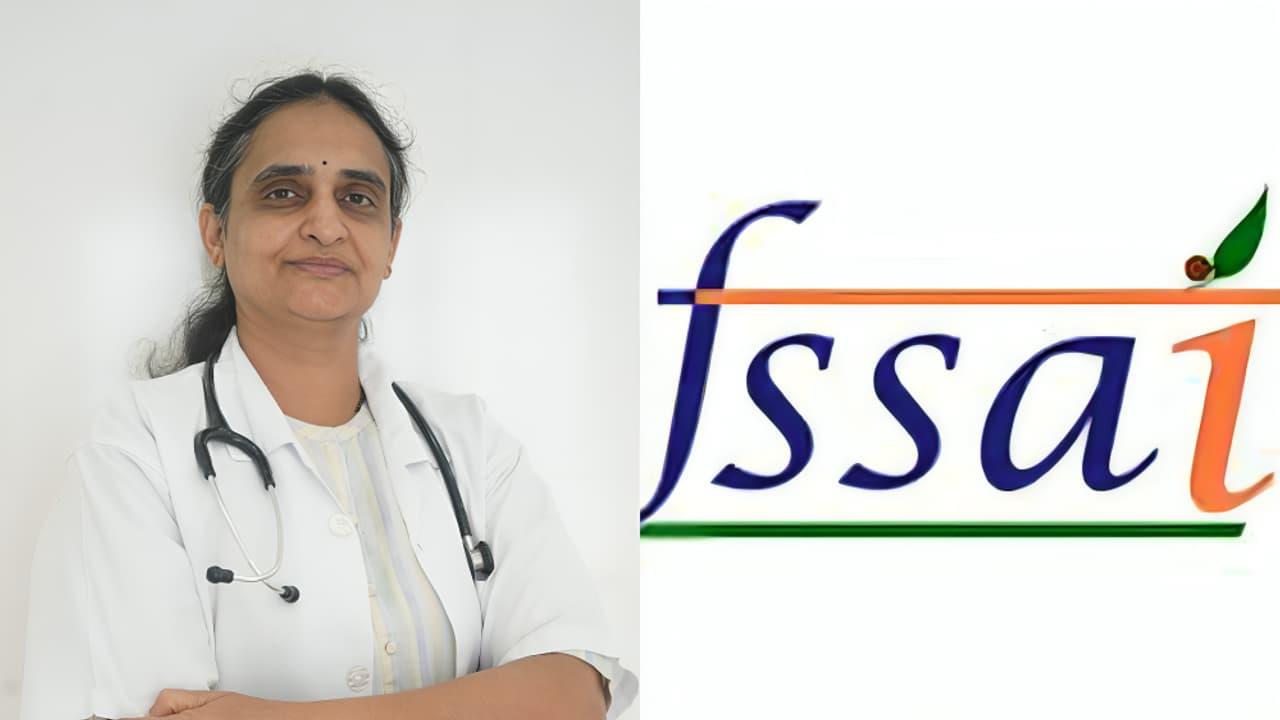Health
Hyderabad Doctor’s Campaign Reshapes India’s ORS Labelling Rules

A dedicated campaign led by a paediatrician from Hyderabad has resulted in significant changes to the labelling of Oral Rehydration Salts (ORS) in India. Dr. Sivaranjani Santosh has successfully pushed for a nationwide ban on the use of the term “ORS” for products that do not adhere strictly to the formula approved by the World Health Organization (WHO). This decision, confirmed in a directive from the Food Safety and Standards Authority of India (FSSAI) on October 14, 2025, marks the culmination of nearly eight years of advocacy and legal effort.
The FSSAI directive prohibits any food business operator from labelling or marketing a product with the term “ORS” unless it meets the WHO’s established composition standards. Dr. Santosh expressed her gratitude for the collaborative efforts that led to this victory, stating, “This victory belongs not to one person, but to people’s power: the doctors, advocates, mothers, and influencers who stood with me.”
Changes to Labelling Regulations
The recent ruling effectively rescinds earlier permissions that allowed the use of “ORS” under specific disclaimers. Previously, the FSSAI had permitted the term to be used in conjunction with statements clarifying that a product was not a WHO-recommended formula. The new directive eliminates even these allowances, ensuring that misleading labelling practices are no longer tolerated.
Furthermore, on October 15, 2025, the FSSAI reiterated the ban, emphasizing that using “ORS” on non-compliant products, including fruit-based or ready-to-drink beverages, violates the Food Safety and Standards Act of 2006. The authority noted that such practices could mislead consumers and categorically constitute misbranding, punishable under Sections 52 and 53 of the Act.
Dr. Santosh began her campaign nearly a decade ago after observing sugary drinks marketed as “ORS” in supermarkets. She raised concerns that these products could confuse parents and potentially harm children suffering from dehydration or diarrhoea. Additionally, she highlighted the risks associated with excessive sugar and incorrect electrolyte ratios, particularly for vulnerable populations like young children and diabetics.
Legal Advocacy and Public Support
In 2022, Dr. Santosh escalated her campaign by filing a Public Interest Litigation (PIL) in the Telangana High Court. This legal action prompted the court to seek formal responses from the FSSAI and the Drug Controller General of India (DCGI) regarding the public health implications of misleading marketing practices. The court’s intervention initially led to an FSSAI directive in April 2022, restricting the use of “ORS” in food products.
However, these restrictions faced challenges, as companies holding registered trademarks successfully lobbied for a temporary relaxation of the guidelines. Despite these setbacks, the FSSAI’s recent directive has now closed the loophole that allowed certain beverages to continue using “ORS” alongside disclaimers.
The significance of this new regulation cannot be overstated. ORS is a medical formulation containing exact amounts of sodium chloride, potassium chloride, glucose, and citrate, intended to replenish lost fluids and electrolytes. Misleading products not only fail to provide proper rehydration but may exacerbate dehydration or lead to salt toxicity in children.
Dr. Santosh’s persistence and the public’s support have proven instrumental in achieving this regulatory change. Following the announcement, she shared her thoughts on social media, stating, “No one can use ORS on their label unless it is a WHO-recommended formula, and no one can sell it right from today.” Her message resonated widely, garnering appreciation from parents, healthcare professionals, and advocates who have supported her cause.
This decisive policy change enhances consumer safety and ensures that when individuals see the term “ORS,” they can trust that the product adheres to the rigorous standards set by the WHO. The shift underscores the importance of accurate labelling in public health and the impact that dedicated individuals can have in advocating for consumer rights.
-

 World5 months ago
World5 months agoSouth Korea’s Foreign Minister Cho Hyun to Visit China This Week
-

 Business5 months ago
Business5 months agoStarling Bank Plans Secondary Share Sale, Targeting $5.4 Billion Valuation
-

 Top Stories5 months ago
Top Stories5 months agoMunsang College Celebrates 100 Years with Grand Ceremony
-

 World5 months ago
World5 months agoPAS Aims to Expand Parliamentary Influence in Upcoming Election
-

 Business7 months ago
Business7 months agoKenvue Dismisses CEO Thibaut Mongon as Strategic Review Advances
-

 Lifestyle6 months ago
Lifestyle6 months agoHumanism Camp Engages 250 Youths in Summer Fest 2025
-

 Sports6 months ago
Sports6 months agoDe Minaur Triumphs at Washington Open After Thrilling Comeback
-

 Sports7 months ago
Sports7 months agoTupou and Daugunu Join First Nations Squad for Lions Clash
-

 Top Stories7 months ago
Top Stories7 months agoColombian Senator Miguel Uribe Shows Signs of Recovery After Attack
-

 World7 months ago
World7 months agoASEAN Gears Up for Historic Joint Meeting of Foreign and Economic Ministers
-

 Health6 months ago
Health6 months agoNew Study Challenges Assumptions About Aging and Inflammation
-

 Business7 months ago
Business7 months agoOil Prices Surge Following New EU Sanctions on Russia









